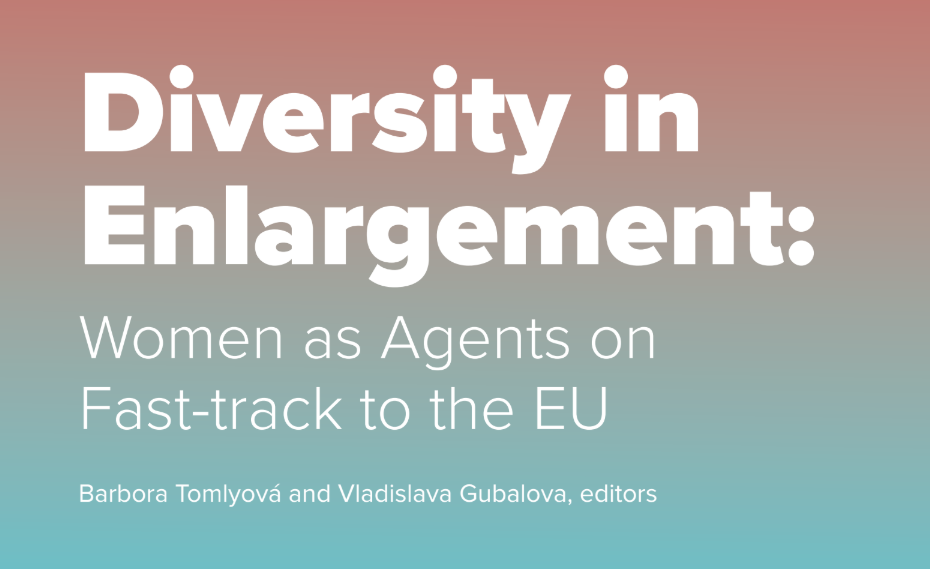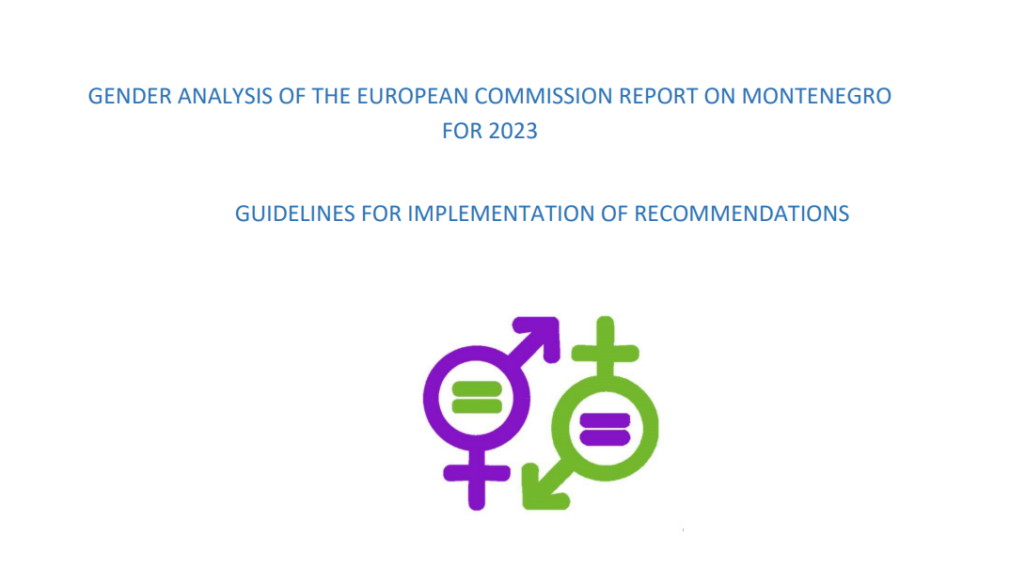1493Views 0Comments

Letter to the Prime Minister Designate
WRC addressed the letter to Mr. Zdravko Krivokaić, the Prime Minister-Designate regarding equal inclusion of women and men in decision-making bodies. The letter states the following:
Montenegro is currently experiencing significant political changes. However, some old problems remain – among them the absence of women from important political processes and the rising poverty among women and children in Montenegro, caused by discrimination, gender-based violence, and an inefficient response by the state to these issues.
For the past eight years, the Women’s Rights Centre has been providing free legal and psychological support and legal representation to women and children who have experienced violence and discrimination, supporting them in their legal proceedings before the competent authorities. We currently have over 200 active cases, and these cases allow us to have a detailed understanding of the issues that women in the Montenegrin society are facing, issues to which the state is not giving due attention. This compels us to work actively towards changing such an unfavourable situation in the country.
Valuing your hitherto openness towards consulting with the civil society, with this letter we wish to draw your attention to some of the key problems and challenges that women in Montenegro are facing, and to underline how you could make a personal contribution to improving gender equality in Montenegro in this key moment for our country.
- Women comprise more than one half of Montenegro’s population, yet they are continuously under-represented in the political and public life of Montenegro. Regardless of the fact that women make up 50.6% of Montenegro’s population, women occupy fewer than one quarter of the seats in Montenegro’s parliament. Gender equality cannot wait for ‘better times’ or a ‘more opportune moment.’ Better times are not waited on, they are created, and the most opportune moment is right now. The small number of women MPs is not the result of the women being disinterested in participating in political decision-making, nor the result of their lack of skill, but it is a direct consequence of the decisions made by the political parties to meet only the minimal requirement when it comes to placing women on electoral lists. When the Election Law prescribed quotas for the less represented gender, the parties found women to fill the quotas. However, although among those women there are many competent and dedicated women with excellent qualifications to occupy positions in the Government, the hitherto practice has shown that the parties, who are many, in their scramble for positions, which are few, are not inclined to propose women for the positions in the Government. You have the power to propose them yourself; all the more so given that you have shown willingness to appoint members of the Government from among experts and not just politicians. You have a major opportunity to recognise the potential of those women who are competent and able to cover to a high standard of quality the ministerial positions or the Deputy Prime Minister positions on the team you select.
- Politics are not the only domain where women are facing unusually difficult challenges in reaching positions of importance. As a rule, wherever there is money and power there are no women, and vice versa. In addition to being under-represented in the executive and the legislative branches of government, the women in Montenegro are on average far poorer than men. Their poverty usually leads to the poverty of children as well, given that women are often taking care of children as single parents, which is further caused by the incapability of the state to ensure regular enforcement of judicial decisions related to child alimony, in relation to which we have proposed on several occasions the establishment of a national Alimony Fund. We expect your Government to place this issue on its priority list.
- Even though Montenegro boasts more women who have completed higher education studies than men, due to gender-based discriminations, in particular due to pregnancy and motherhood, women lose jobs more often, are paid less for equal value labour, and get promoted less often regardless of their expertise and qualifications. In addition, many women work in the shadow/grey economy without any security or respect for legally guaranteed rights. We underline in particular the need to resolve the issue of women beneficiaries of the remuneration for mothers of three or more children. We expect that the new Government will recognise as a priority the need to resolve the problem of poverty and economic inequality of women.
- Women suffer more from the crisis caused by the COVID-19 pandemic, experiencing existential issues such as losing jobs and being more exposed to domestic violence. Regardless of this, not a single of the previously adopted Government packages for alleviating the effects of the crisis has provided for any sort of assistance to women in such situations. We expect the Government of Montenegro to take the afore-mentioned problems into consideration when creating any and all future measures for the economic revival of the country and employment incentives.
- The problems women in Montenegro are facing do not have enough public visibility. Women’s rights and issues of gender equality are still only the concern of specialised civil society organisations and are not making it onto the map of political priorities. One of the reasons behind this is a patriarchal understanding of the roles of women and men, which to a large extent conditions the action of competent authorities and pushes women into the private domain, thus perpetuating the maintenance of a deeply unjust system which is founded on gender inequality. We expect a greater accountability from the competent authorities in meeting the commitments set out by the Law on Gender Equality and the accompanying policies, as well as their adequate support to specialised organisations who are treating these issues actively and as their top priorities.
Montenegrin citizens, men and women, voted for change. The expectations are big, and we understand the delicacy of the current political moment, the challenges regarding the composition of the new Government, and the partisan scramble for portfolios. However, this cannot be an excuse to avoid dealing with the issues stated above, which to a large extent form a basis on which the well-being and development of the Montenegrin society depends.
The importance of these issues has also been recognised by the international community, and in particular the European Union, which has placed the issue of gender equality and protection from discrimination as key priorities for Montenegro’s accession into the EU. This can be seen in the European Union’s reports on Montenegro, but also in the recent letter of support that our organisation has received from the newly appointed EU Ambassador to Montenegro, Ms Oana Cristina Popa, which we are enclosing for your reference together with this letter.
Women can make an immeasurable contribution to good policy-making and implementation, by integrating the women’s perspectives and experiences, and it is the time they were given the chance to do so. The possibilities are many, and we hope that you will find this letter helpful in looking at the enormous potential of women in Montenegro as an opportunity for ensuring the well-being of the society on the whole.
Dear Mr Krivokapić,
This is your opportunity to show not just your sensibility towards the issues of gender equality, but also the democratic potential that was lacking in many of your predecessors, as well as to assure us that you are taking into consideration the needs of all citizens of Montenegro, men and women alike. The previous Government had three women in its ranks, which was unacceptably little. We expect much better from the new Government.
In favour of the changes for the better which will not pass by women as one half of Montenegro’s population.
For women’s contribution to those changes.
For a better and more equal future.
Women’s Rights Center


